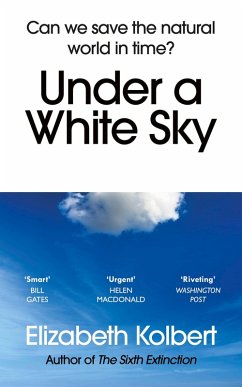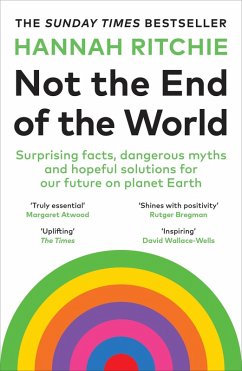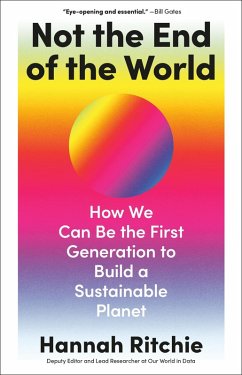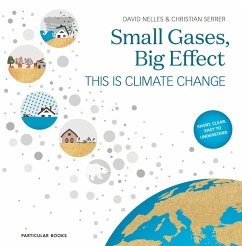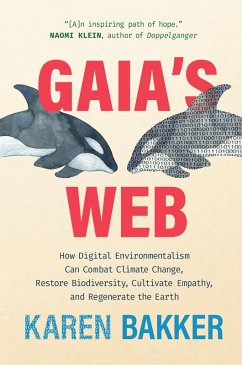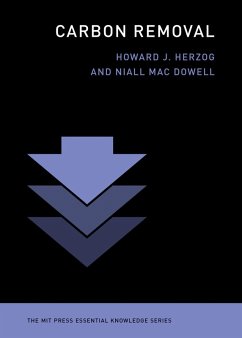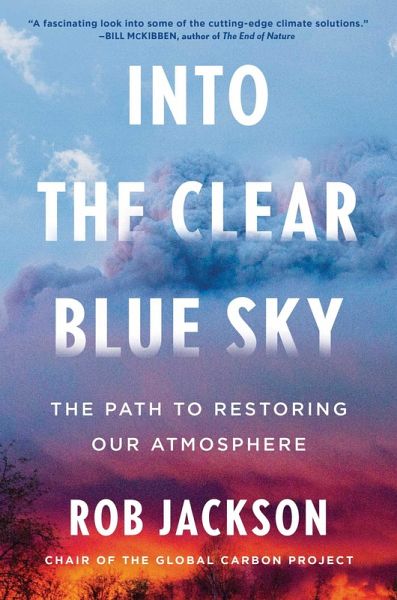
Into the Clear Blue Sky (eBook, ePUB)
The Path to Restoring Our Atmosphere
Versandkostenfrei!
Sofort per Download lieferbar
14,83 €
inkl. MwSt.
Weitere Ausgaben:

PAYBACK Punkte
0 °P sammeln!
One of Scientific American and The Times (London)'s Best Books of 2024 From one of the world's leading climate scientists, a heart- and mind-changing book that offers a hopeful and attainable vision for restoring the atmosphere and ending the climate crisis. Climate change is here. From the millions displaced by the floods in Pakistan to Californian and Canadian towns incinerated by wildfires, we are experiencing the anguish that climate change causes. Fossil fuels are making the planet unlivable, and they are deadly. We know that we must cut emissions if we are going to limit the catastrophes...
One of Scientific American and The Times (London)'s Best Books of 2024 From one of the world's leading climate scientists, a heart- and mind-changing book that offers a hopeful and attainable vision for restoring the atmosphere and ending the climate crisis. Climate change is here. From the millions displaced by the floods in Pakistan to Californian and Canadian towns incinerated by wildfires, we are experiencing the anguish that climate change causes. Fossil fuels are making the planet unlivable, and they are deadly. We know that we must cut emissions if we are going to limit the catastrophes, but is that enough? In Into the Clear Blue Sky, climate scientist and chair of the Global Carbon Project Rob Jackson explains that we need to redefine our goals. As he argues here, we shouldn't only be trying to stabilize the Earth's temperature at some arbitrary value. Instead, we can restore the atmosphere itself in a lifetimeand this should be our moral duty. Restoring the atmosphere means reducing the amount of greenhouse gases in the air to pre-industrial levelsstarting with super-potent methaneto heal the harm we have done. Emissions must be cut, first and foremost. But to safeguard a livable planet for future generations, we must repair the damage we have caused. Jackson introduces us to the brilliant leaders and innovators behind some of the boldest and game-changing climate solutions under development. When it comes to greenhouse gas mitigation, our choices matter, because it is easier to stop emissions from happening than to remove greenhouse gases from the air later. But while mitigation is crucial, no number of solar panels, electric cars, and veggie burgers alone will be enough to halt climate change. Decades of inaction have convinced Jackson that we need to remove greenhouse gases from the air using everything from nature to cutting-edge technologies. Into the Clear Blue Sky is a heart- and mind-changing book. Guided by one of the leading scientists in this fight and a deeply gifted storyteller, we learn why we should all feel hopeful. One way or another, we will restore the planet together. The question is how, and how long will it take?
Dieser Download kann aus rechtlichen Gründen nur mit Rechnungsadresse in A, B, BG, CZ, D, DK, EW, E, FIN, F, GR, HR, H, I, LT, L, LR, NL, PL, P, R, S, SLO, SK ausgeliefert werden.





